How to plant trees to benefit free-range poultry farms
There are many benefits to be had from tree cover on poultry farms, including improved ranging, the reduction of injurious feather pecking and the number of egg seconds.
Farmers Weekly and Poultry World have teamed up with the Woodland Trust to put together this step-by-step guide to planting trees on free-range poultry farms.
We’ve created several design options, depending on your management practices and farm layout, the location of sheds and the land shape. All the designs feature trees and shrubs close to sheds and so should encourage poultry to roam.
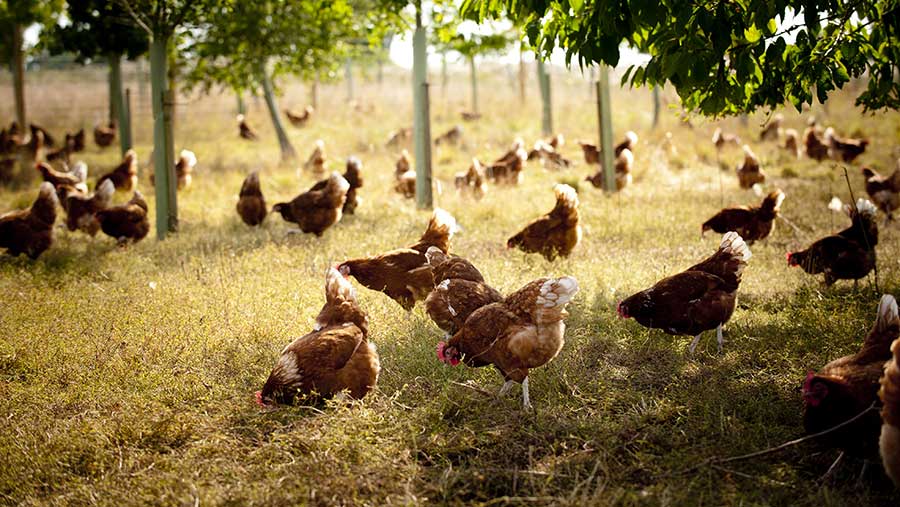
© Jim Varney
Before you plant
1. Before you commence your planting project, check whether your range can be planted – if your land is ecologically valuable or has archaeological features such as ridge and furrow you will need to check with the relevant authority.
2. Select your species by looking at what is growing well nearby. Native shrubs such as hawthorn will encourage birds to explore, as well as acting as a windbreak and screens for sheds. The Woodland Trust recommends you plant only native trees.
3. When planting close to sheds and other infrastructure, bear in mind the ultimate height of the species you choose. Select species whose ultimate height won’t affect power lines, drop leaf litter into gutters and restrict extraction fan outlets.
4. Plant your trees between November and March, and protect them from browsing by mammals such as rabbits or voles with tubes and stakes. This also prevents hens from pecking the trees.
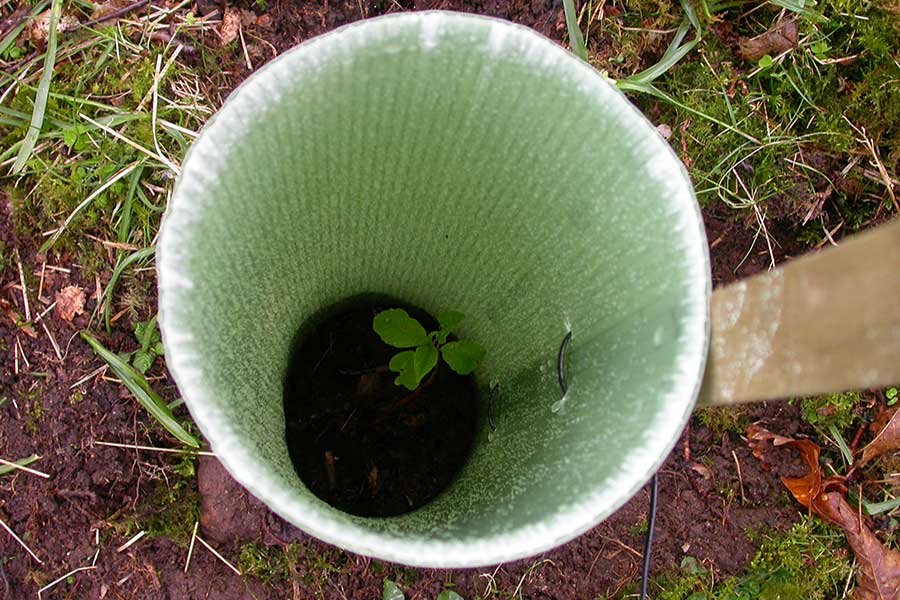
Designing your woodland
When planting close to sheds and other farm buildings, it is important you leave enough room for machinery access without damaging the trees.
Design 1: Plant close to the shed with a clear view of tree cover from popholes to encourage birds outside and onto the range.
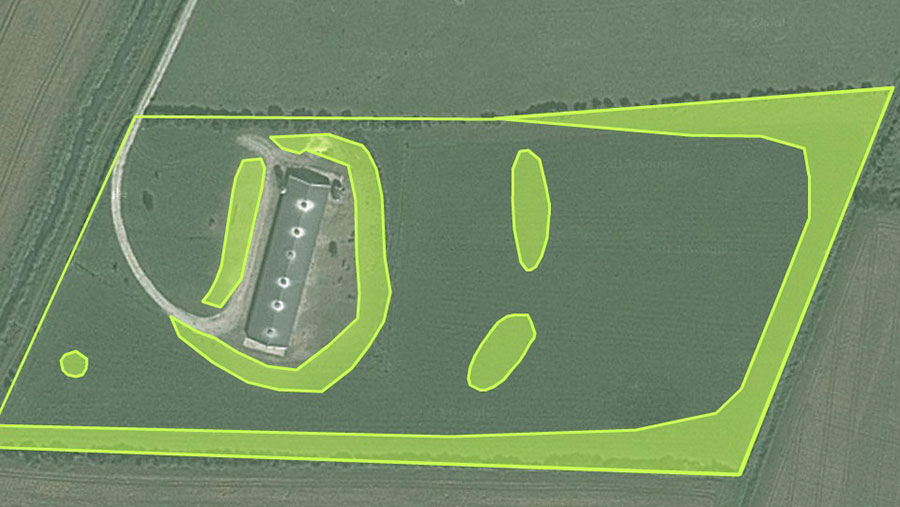
Design 2: Plant lots of groups of 15-30 trees at 2m spacing, with the bulk of trees on the edge at 3m spacing to create shelter.
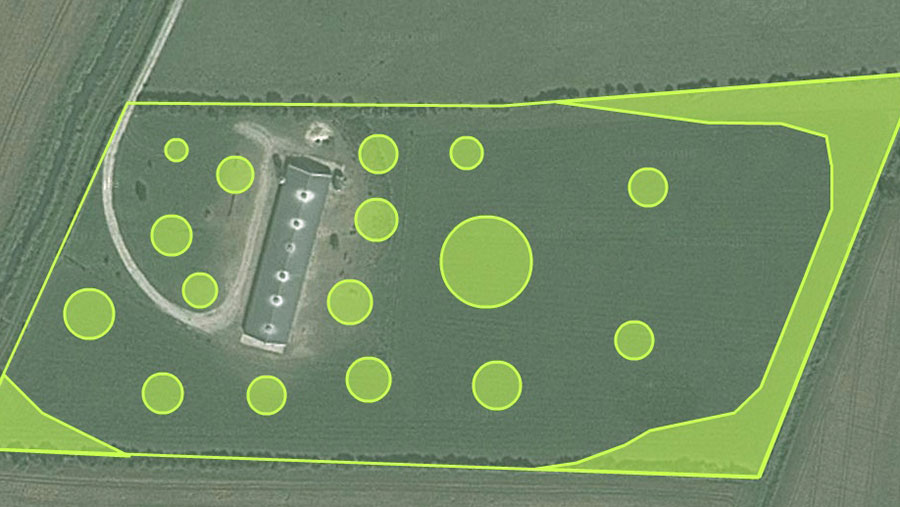
Design 3: Plant large oblongs of trees at 2m spacing and start thinning at 5-10 years.
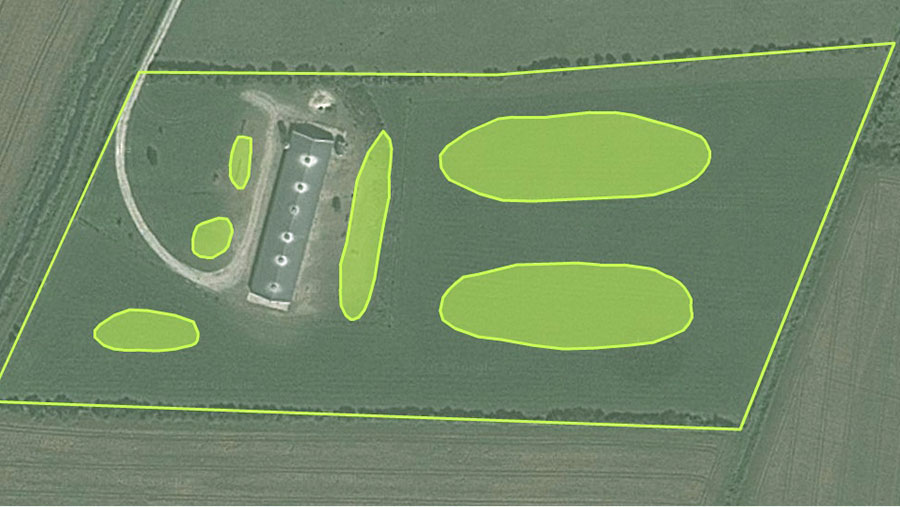
Design 4: Plant in blocks of straight lines at 2m spacing for easier mowing between rows and thin after 5 years.
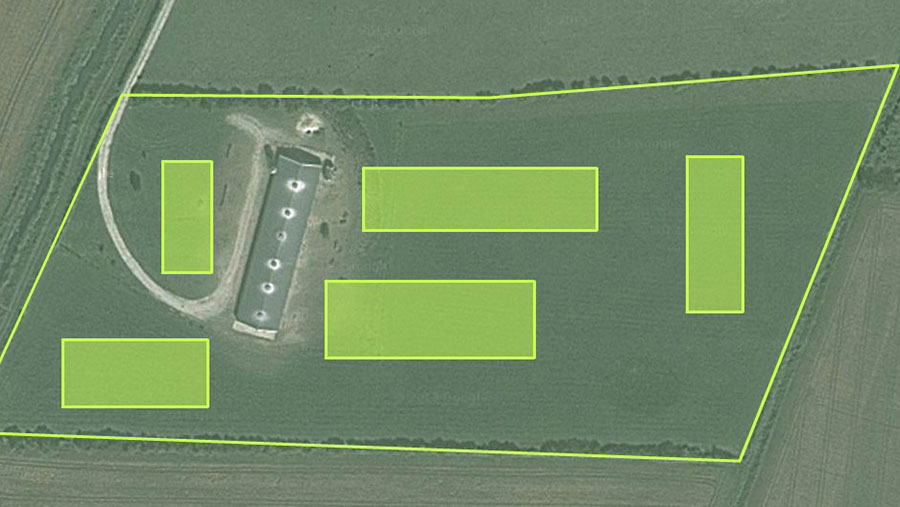
Design 5: Encourage hens outside by leaving corridors between belts of woodland which may take them further out into the range. Plant trees at 2m spacing and start thinning trees at 5-10 years.
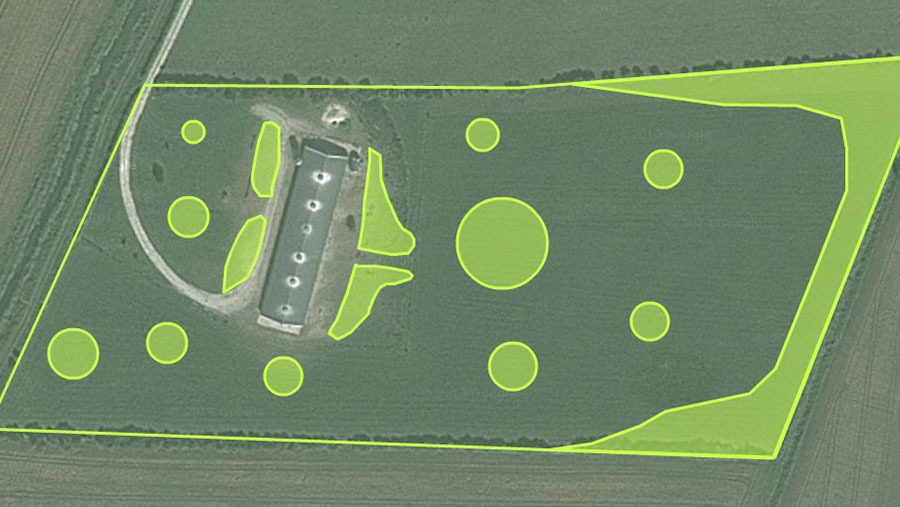
Maintenance
1. Keep the base of your newly planted trees weed free to make sure that young trees with immature root systems can access as much water as possible.
2. Leave a ring, like a polo mint, of vegetation approximately 10cm wide directly adjacent to the base of the tree. This can help protect the roots from scratching by hens.
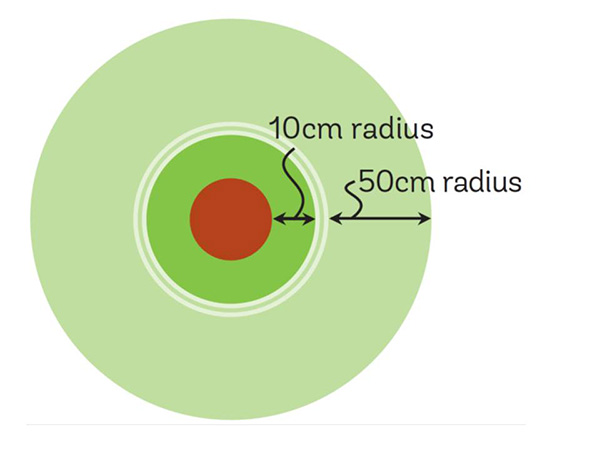
More detailed information on planting trees to benefit free-range poultry farms can be found on the Woodland Trust website.
The Woodland Trust offers independent advice and support to farmers who are interested in planting trees on their land.
This includes one-to-one advice from local advisers, a whole-farm tree assessment, help with planting designs and grant applications as well as subsidised trees and guards.
For more information visit www.woodlandtrust.org.uk/plant or email plant@woodlandtrust.org.uk
